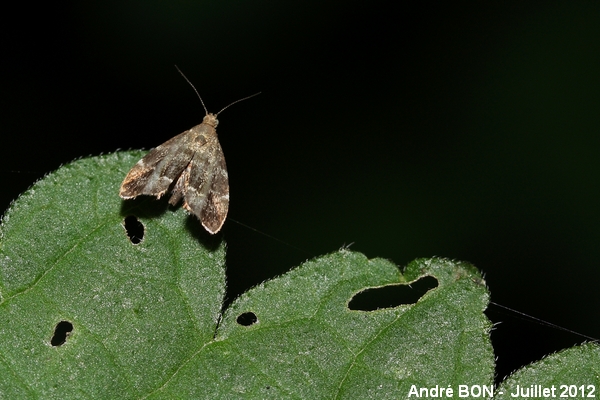
| Nettle-tap (Anthophila fabriciana (Linnaeus, 1767)) |

|
|
Scientific name: Anthophila fabriciana (Linnaeus, 1767) Common name: Nettle-tap French name: Xylopode de Fabricius Order: Lepidoptera Suborder: Microlepidoptera Family: Choreutidae Subfamily: Choreutinae Wingspan: 10-15 mm. Biotope: Damp places where the host plants grow. Geographic area: Europe north to Scandinavia, temperate and northern Asia as far as east Siberia, Japan, Asia Minor, the Canary Islands, Madeira. Flight time: May to October. Number of generations : 2 Caterpillar: Whitish grey and slightly translucent with black spots. The head is light brown with blackish brown patches. Host plant: Common Nettle (Urtica dioica) and Upright Pellitory (Parietaria officinalis). |
The Nettle-tap looks like a tortricidae moth with a rather curved fore wings' costal edge. It is used to landing with its fore wings wide open. They are spotted with brown and black and powdered with white. You can distinguish one wavy submarginal white line. The fringe is black and white with one black marking on each side and another one in the middle. The antennae are finely ringed with black and white. The Nettle-tap is active during the day and over winters as a caterpillar. |
| [To know more about the Nettle-tap] [Top] |

|
This small microlepidoptera moth is not very young and the fringe of the fore wings could have helped to confirm the identification but it is very damaged. |